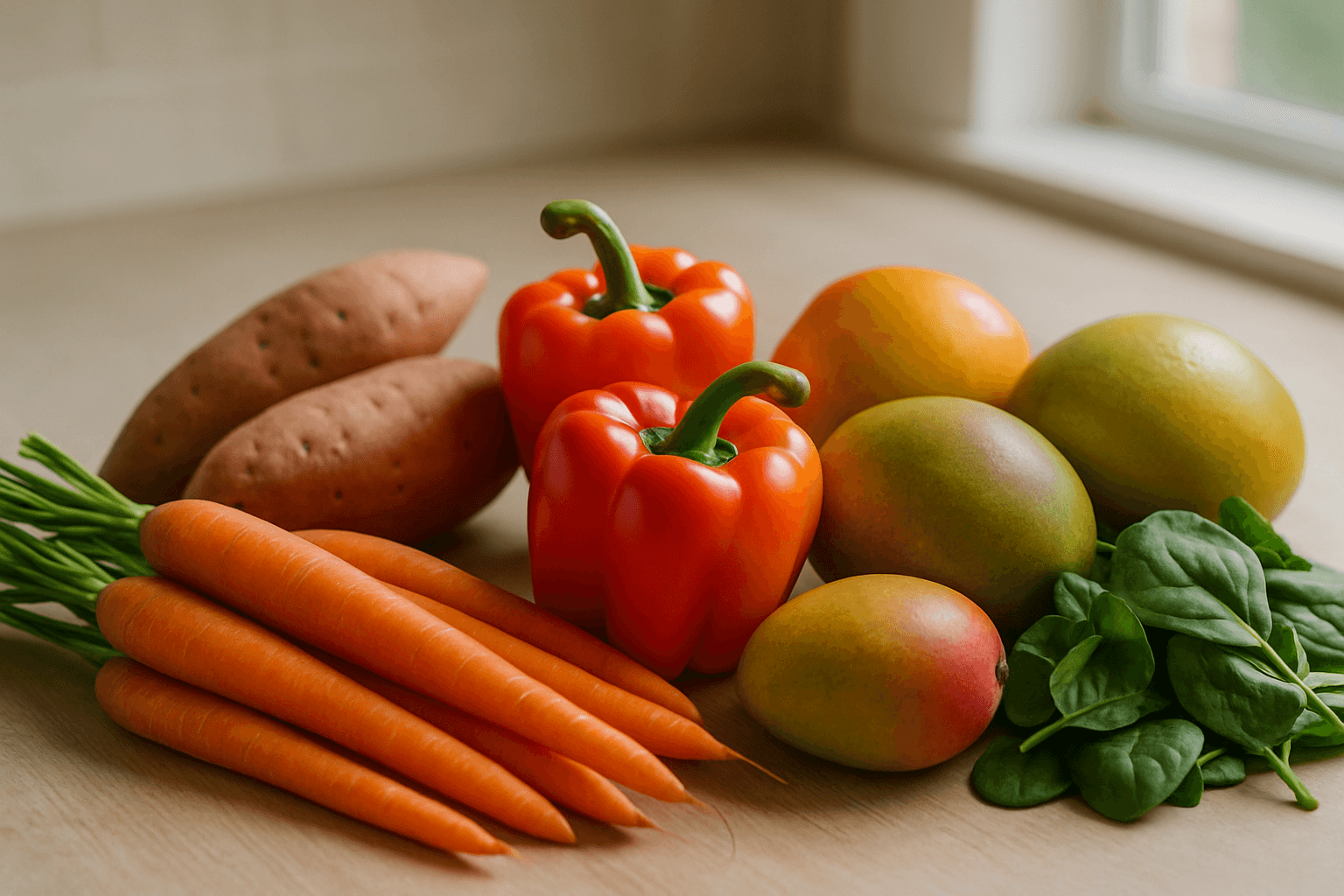Beta-carotene, a vibrant pigment belonging to the carotenoid family, is abundant in many fruits and vegetables, giving them their characteristic red, orange, and yellow hues. Beyond its aesthetic appeal, beta-carotene is a provitamin A carotenoid, meaning the human body can convert it into vitamin A (retinol) as needed. This conversion is crucial, as vitamin A plays a vital role in numerous bodily functions, including vision, immune health, and skin cell growth. As a powerful antioxidant, beta-carotene helps combat oxidative stress, which contributes to cellular and tissue damage, thereby supporting overall health and specifically benefiting skin and eye well-being.
Beta-Carotene for Radiant Skin
Beta-carotene is a highly valued nutrient in dermatology and a key component for maintaining healthy, radiant skin. Its benefits stem primarily from its antioxidant properties and its conversion to vitamin A.
As an antioxidant, beta-carotene helps neutralize free radicals, which are unstable molecules that can cause oxidative damage to skin cells. This protection strengthens the skin’s defenses against environmental aggressors, including UV radiation from the sun. While not a substitute for sunscreen, dietary beta-carotene can increase the skin’s natural defenses and aid in maintaining its health and appearance.
Furthermore, when converted to vitamin A, beta-carotene supports skin rejuvenation by increasing cell turnover, which helps to diminish signs of aging, improve skin tone, and reduce roughness. It can also enhance skin moisture, with studies suggesting an increase in skin hydration by 20%. Beta-carotene is also known to contribute to a natural, healthy golden or bronzed complexion. This is because it is a natural orange pigment that can give the skin a more bronzed appearance.
Beta-Carotene for Vision Health
The role of beta-carotene in maintaining optimal vision is well-established, primarily due to its conversion into vitamin A, an essential nutrient for eye function. Vitamin A is a key component of rhodopsin, a pigment in the retina that enables the eyes to see in low-light conditions.
Adequate intake of beta-carotene helps prevent night blindness (nyctalopia), a condition that makes seeing in dimly lit environments significantly difficult. Moreover, diets rich in carotenoids, including beta-carotene, have been linked to a reduced risk of age-related macular degeneration (AMD), a leading cause of vision loss in older adults. Research indicates that high blood levels of carotenoids may lower the risk of developing advanced AMD by as much as 35%.
Beta-carotene also contributes to preventing and treating dry eyes by ensuring proper tear production, which keeps the eyes moist and comfortable. It supports the health of the cornea, the clear, protective outer layer of the eye, and the integrity of mucous membranes, providing a barrier against infections. Additionally, beta-carotene helps reduce the oxidative stress placed on the eyes by exposure to blue light from screens and sunlight.
14 Beta-Carotene-Rich Foods
Incorporating a variety of beta-carotene-rich foods into your diet is an excellent way to harness their benefits for both skin radiance and eye health. Pairing these foods with healthy fats like olive oil or avocado can enhance the absorption of this fat-soluble nutrient.
1. Carrots
As their name suggests, carrots are one of the most renowned sources of beta-carotene, which gives them their distinctive orange color. A 100-gram serving of cooked carrots provides approximately 8,279 micrograms (mcg) of beta-carotene. They are excellent for promoting healthy vision and skin.
2. Sweet Potatoes
Sweet potatoes are exceptionally rich in beta-carotene, often containing more than carrots. A 100-gram serving of boiled sweet potato contains about 9,406 mcg of beta-carotene. Their vibrant orange flesh contributes significantly to eye health and skin glow.
3. Spinach
Despite its green color, spinach is packed with beta-carotene, along with other antioxidants. Cooked spinach, without added fat, provides about 6,103 mcg of beta-carotene per 100 grams. It supports eye health and helps maintain youthful skin.
4. Kale
This nutrient-dense leafy green is another excellent source of beta-carotene. Kale contributes to eye health and overall well-being, making it a powerful addition to salads and smoothies.
5. Butternut Squash
Butternut squash is a delicious and versatile vegetable high in beta-carotene. Cooked butternut squash contains about 9,369 mcg of beta-carotene per 100 grams. It’s beneficial for both skin and eye health.
6. Cantaloupe
This sweet orange melon is a refreshing source of beta-carotene. Cantaloupe offers about 3,575 mcg of beta-carotene per 100 grams and supports vision and skin.
7. Red Bell Peppers
Especially the red and orange varieties, bell peppers are rich in beta-carotene. They are great consumed raw in salads or cooked in various dishes, contributing to vision and skin health.
8. Apricots
These small, sweet fruits are loaded with beta-carotene, offering benefits for both eye health and skin vibrancy. They can be enjoyed fresh or dried.
9. Pumpkin
Pumpkin, with its bright yellow pulp, is an excellent source of beta-carotene, beneficial for digestive and immune health, as well as skin and eyes. It’s commonly used in pies, soups, and roasted dishes.
10. Broccoli
Broccoli contains a good amount of beta-carotene, alongside other vitamins and minerals. It supports overall health, including skin and eye functions.
11. Peas
Podded peas are a source of beta-carotene, which contributes to the body’s antioxidant defenses.
12. Romaine Lettuce
While often overlooked, romaine lettuce provides a notable amount of beta-carotene. It contributes approximately 2,456 mcg of beta-carotene per 100 grams, supporting overall nutrient intake for skin and eye health.
13. Mangoes
Mangoes are not only delicious but also rich in beta-carotene, promoting eye health and immunity. They can be enjoyed fresh or incorporated into smoothies and desserts.
14. Collard Greens
Collard greens, a dark leafy green, are a nutritious source of beta-carotene, contributing to eye health and overall well-being. Like other leafy greens, their beta-carotene content is masked by chlorophyll.

